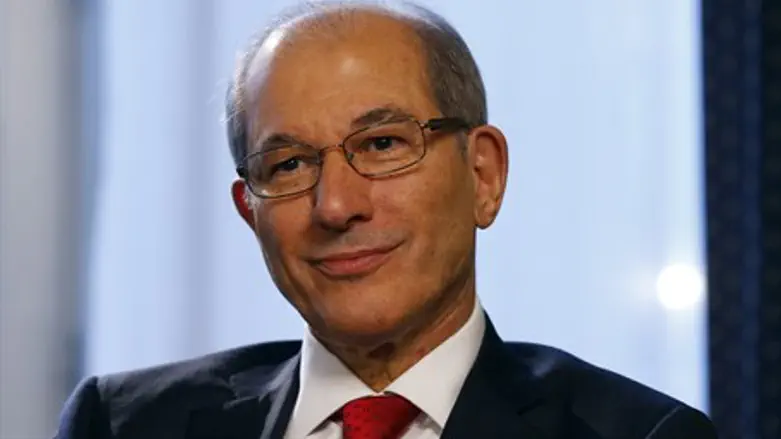
Syria on Monday denied ever using chemical weapons in its four-year-old civil war, telling a global watchdog it was cooperating fully with the destruction of its toxic stockpile, AFP reported.
Damascus's rebuttal comes amid growing accusations it is not being transparent with the world's chemical watchdog and as United Nations efforts are stepped up to track down the perpetrators of deadly chlorine gas attacks in the war-torn country last year.
"We wish here to state categorically that we have never used chlorine or any other toxic chemicals during any incidents or any other operations in the Syrian Arab Republic since the beginning of the crisis and up to this very day," Deputy Foreign Minister Faisal Moqdad told the annual meeting of the Organization for the Prohibition of Chemical Weapons (OPCW).
Damascus rejected "the false accusations against Syria with respect to its supposed use of chlorine as a weapon in military operations," he added, according to AFP, speaking in Arabic through an interpreter.
The accusations "only serve political agendas, which also aim at diverting our successes in eliminating our chemical weapons," Moqdad said.
Last week, the OPCW voiced "grave concern" at the continued use of toxic arms in Syria, calling for those behind such attacks to be held accountable.
The global watchdog several weeks ago confirmed with "utmost confidence" that mustard gas was used in Syria in August during fighting between rebels and jihadists and "likely" killed a child. The OPCW, however, has not determined whether the Syrian regime or the rebels were the ones to use the chemical weapons.
But Western countries including the United States and Canada, as well as the European Union, have lambasted Syria, raising doubts about whether President Bashar Al-Assad's regime is truly committed to ridding his country of all chemical arms.
There are "many uncertainties regarding the dismantling of Syria's chemical weapons program, notably the gaps and contradictions contained in Syria's declarations," EU representative Jacek Bylica told the meeting in The Hague, attended by delegates from the OPCW's 192 states.
"These uncertainties lead to doubts as to compliance by Syria with its obligations under the Convention," Bylica said at the opening of the five-day assembly.
French ambassador Laurent Pic told delegates some reports indicated the presence of helicopters at the time of chemical attacks.
"We all know what that means: the pursuit of relentless oppression by any means, including the most abominable, by a criminal regime against its own people," he said, according to AFP.
Accusations have also mounted that extremists with the Islamic State group, which has captured a swathe of territory in both Syria and Iraq, have resorted to such tactics.
In addition to the mustard gas attack in August, OPCW experts also concluded that chlorine gas was likely used in an attack in Idlib province in March.
OPCW director general Ahmet Uzumcu said a joint UN task team, approved by the Security Council in August to probe chlorine attacks in Syrian villages last year, was up and running in New York and in The Hague "with plans to set up in Damascus."
The panel, which comprises 24 experts, is expected to deliver its first report to the Security Council in February, Uzumcu said.
The watchdog's top official told Monday's meeting "significant progress" had been made in destroying Syria's declared chemical weapons stockpile.
Under a deal hammered out in 2013 between Russia and the United States following a sarin gas attack on the outskirts of Damascus in which hundreds died, the regime joined the UN Convention against chemical weapons and pledged to hand over all such arms to the OPCW for destruction.
Some 1,300 tons of chemical weapons were handed over by Syria, including mustard and sarin gas.
The last of the stockpile will be destroyed in the United States by the end of the year, Uzumcu said.
But Canadian ambassador Sabine Nolke said: "More than two years after acceding to this treaty, Syria has failed to demonstrate that it deserves treatment similar to that of any other ordinary member."
AFP contributed to this report.
